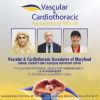Promoting Heart Health at Every Stage of Life
As a cardiologist, I’ve seen the importance of maintaining a healthy heart at all stages of life. From childhood to senior years, your heart requires care and attention to ensure it stays strong and functions well. In this article, I will walk you through effective strategies to promote heart health at any age. Whether you’re young, middle-aged, or in your golden years, taking proactive steps today can lead to a longer, healthier life.

1. Promoting Heart Health in Childhood and Adolescence
The foundation of heart health starts in childhood. It’s crucial to teach kids the importance of a healthy heart early on, as habits formed during these years can last a lifetime. As parents, caregivers, and medical professionals, we play a key role in helping children develop heart-healthy habits. Let me share the story of Ethan, a 10-year-old I worked with who had a family history of heart disease. His parents were concerned about his health, so we developed a plan to help him build healthier habits.
Encouraging physical activity is one of the best ways to promote heart health in children. Activities like playing outside, riding bikes, or participating in team sports can help children develop strong cardiovascular systems. Physical activity not only strengthens the heart but also reduces the risk of childhood obesity, a major risk factor for heart disease later in life.
Additionally, diet plays an essential role in childhood heart health. Teaching kids to enjoy fruits, vegetables, whole grains, and lean proteins sets them up for success. Avoiding processed foods high in sugar, salt, and unhealthy fats is key to maintaining a healthy weight and reducing the risk of future heart problems. By focusing on these habits early, we can ensure that children grow up with healthy hearts.
Capital Health Medical Center – Hopewell
capital health medical center hopewell
1 Capital Way, Pennington, NJ 08534, USA

2. Heart Health in Young Adults and Early Adulthood
In young adulthood, heart disease may feel far off in the distance, but this is the time when many adults establish habits that will impact their heart health in the long run. During my years of practice, I’ve worked with many young adults who were unaware of how important it is to take care of their heart early on. Take Emily, for example, a 25-year-old who came to see me after feeling fatigued and short of breath during her workouts. After a thorough exam, we discovered that her cholesterol levels were higher than normal. We talked about the importance of regular exercise, balanced nutrition, and maintaining a healthy weight.
For young adults, the key to heart health is consistency. Staying active, managing stress, and avoiding harmful habits like smoking or excessive drinking are crucial in preventing heart disease later on. Regular exercise is important for cardiovascular fitness, and it doesn’t need to be complicated. Whether it’s walking, swimming, or strength training, getting 150 minutes of moderate activity each week is a great place to start.
Eating a heart-healthy diet is also vital during young adulthood. Foods rich in fiber, such as vegetables, fruits, and whole grains, help to maintain healthy cholesterol levels and regulate blood sugar. Limiting processed foods and unhealthy fats is essential for reducing the risk of developing heart disease in the future.
3. Heart Health in Middle Age: Prevention is Key
As we enter middle age, the risk of heart disease begins to increase, especially if unhealthy habits have been formed in earlier years. By this stage, many individuals start to notice changes in their body, such as higher blood pressure, weight gain, or increased cholesterol levels. These changes are often the result of years of accumulated risk factors like poor diet, physical inactivity, and stress. That’s why middle age is the perfect time to take stock of your heart health and make any necessary changes.
For example, Richard, a 50-year-old patient, came to me after his cholesterol levels were higher than normal, and his blood pressure had crept up over the years. After a full evaluation, we discussed lifestyle changes he could make to improve his heart health. He started walking every day, swapped out unhealthy snacks for healthier options, and focused on lowering his stress levels. Over the next few months, Richard lost weight, and his cholesterol and blood pressure improved significantly, which greatly reduced his risk of heart disease.
For individuals in their 40s and 50s, getting regular checkups is essential. Monitoring cholesterol, blood pressure, and blood sugar helps catch any issues early, allowing for timely intervention before they progress into more serious heart conditions. In addition, making healthier food choices, staying active, and managing stress through techniques like mindfulness or yoga are key strategies to promote heart health in middle age.
4. Heart Health in Older Adults: Managing Risk Factors
In older adults, maintaining heart health becomes even more important, as the risk of developing cardiovascular diseases increases. However, even in your senior years, there are still things you can do to promote heart health. Regular exercise, a balanced diet, and medications to manage any existing conditions, such as high blood pressure or diabetes, can make a significant difference in your cardiovascular well-being.
Let me tell you about Evelyn, a 78-year-old woman who had been living with high blood pressure for years. Despite being diagnosed with heart disease, Evelyn was committed to making changes. We worked together on a tailored plan that included walking every day, reducing her sodium intake, and managing her stress. She also started taking her blood pressure medications consistently. With these changes, Evelyn saw improvements in her heart health, and her quality of life improved significantly.
For older adults, it’s crucial to stay active, even if that means making adjustments to your routine. Gentle activities like walking, swimming, or chair exercises are perfect for seniors and can help maintain cardiovascular health. Additionally, working closely with your doctor to monitor any heart conditions or risk factors is vital in maintaining heart health as you age.
5. The Lifelong Benefits of Heart Health Maintenance
Regardless of your age, the key to a healthy heart is taking action early and maintaining those healthy habits throughout your life. It’s never too late to start making heart-healthy changes, whether it’s incorporating more vegetables into your meals or getting a little more movement into your day. Over the years, I’ve seen patients who made small changes that resulted in long-term improvements in their heart health, proving that it’s never too late to make a difference.
For instance, George, a 68-year-old man who had never paid much attention to his health, came to see me after experiencing shortness of breath. After running tests, we found he had several risk factors for heart disease. George started exercising regularly, adjusted his diet, and lost weight. His heart health improved over time, and he felt better than he had in years. His story is a reminder that it’s never too late to take charge of your heart health, no matter your age.
At HeartCare Hub, we are committed to helping people of all ages improve their heart health. Whether you’re looking for preventive care, expert advice, or treatment options, we’re here to guide you on your heart health journey. Remember, promoting heart health at every stage of life is not just about preventing disease—it’s about enhancing your overall well-being and living a longer, healthier life.






















Deborah Heart and Lung Center
deborah heart and lung center
200 Trenton Rd, Browns Mills, NJ 08015, USA